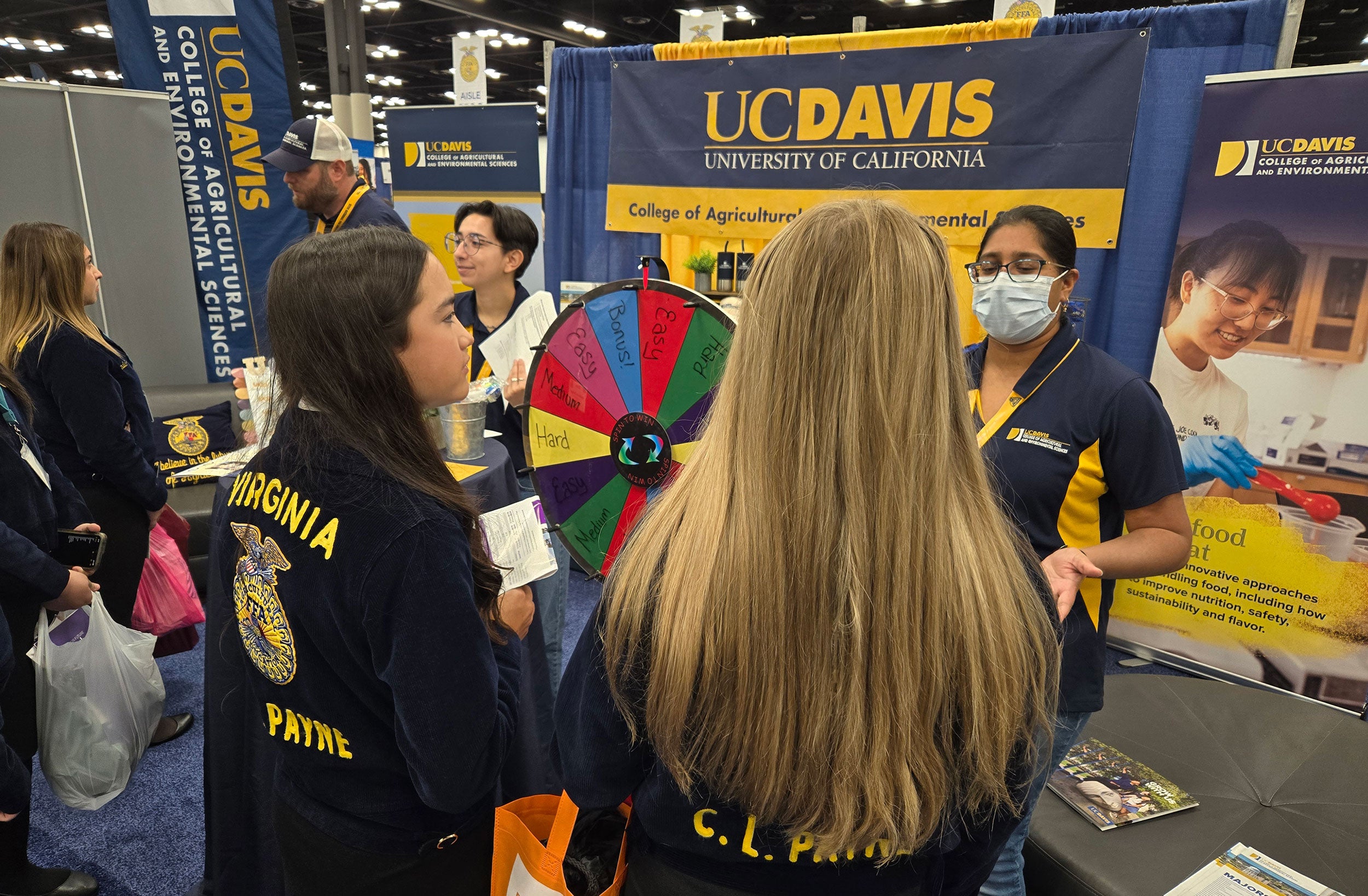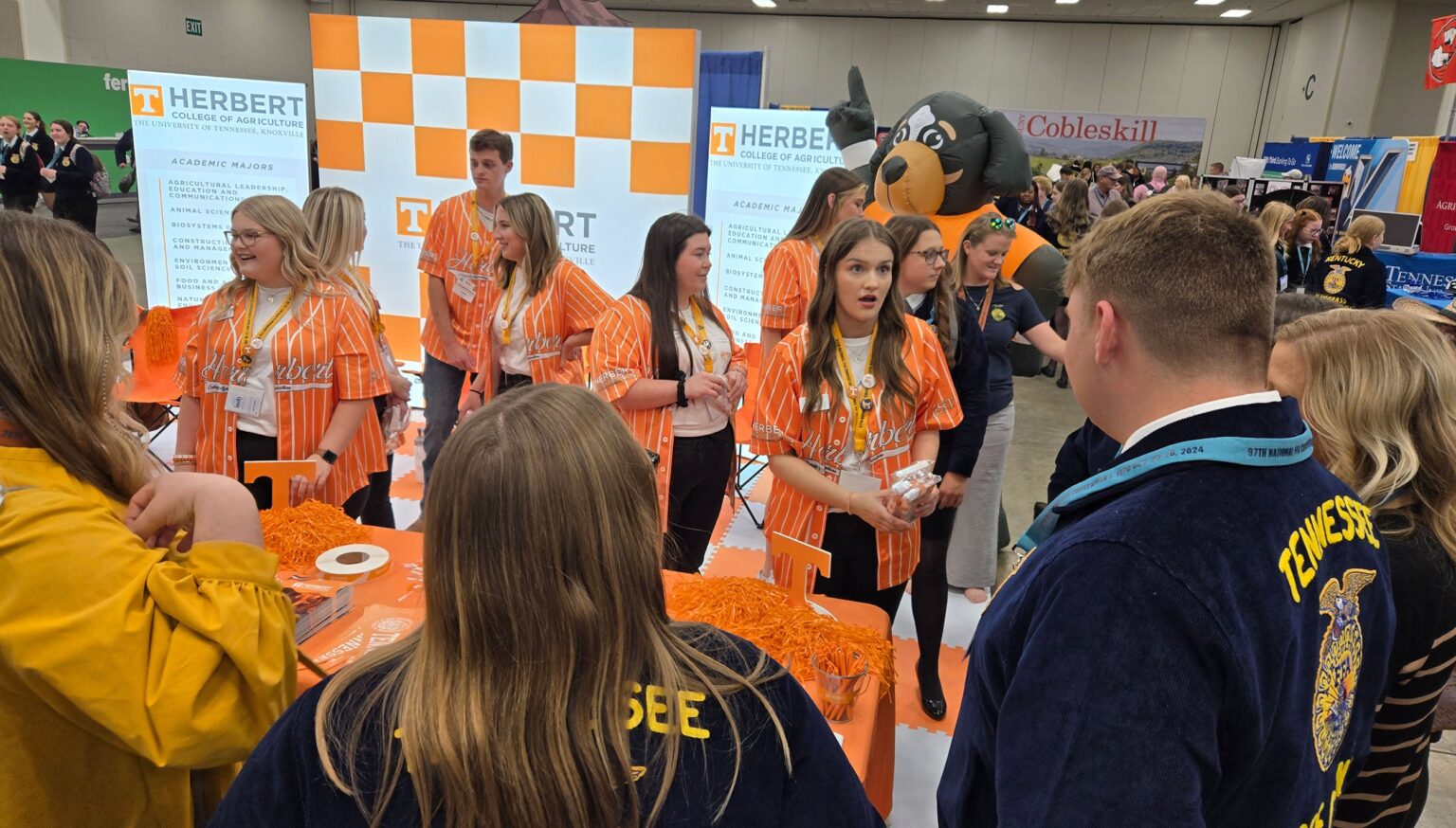INDIANAPOLIS — These days, agriculture is open to people from many walks of life, and having deep ties to a family farm is no longer as crucial as it used to be for students who want to pursue ag-related studies in college.
“The ag background isn’t as vital anymore” for those going into agricultural, environmental, and life sciences colleges, said Matt Camper, assistant dean of teaching practice and academic programs at Colorado State University. “It used to be that, way back, everybody was farming in some way or another, and so one farmer was maybe feeding 20 or 30 people. But now one farmer may be feeding 200 or 300 people or more, and so that opens the door to people being able to think about the other ways that agriculture can become important: maybe it’s rooftop gardening, maybe it’s vertical integration of the farming process. It’s all of those different things coming in together.”
And that’s what agricultural studies are these days, from the more traditional soil and crop science and dairy management tracks to food systems, nutrition sciences, aquaculture, and so much else.
At the National FFA Convention & Expo, I spoke with several agricultural colleges about what they look for in a prospective student and what kind of things will make that student successful in the years they’re pursuing their degree.

The biggest thing we look for in agricultural students that are coming to our college is passion,” said Charlie Lewis, an ambassador at the University of Missouri’s College of Agriculture, Food and Natural Resources. “We want to know: Do you actually care about what you’re going into? What steps are you taking to make sure that you’re getting as much as you want out of your education?”
He said that once there, the most successful students are ones who not only embrace their classes but also take part in some of the 40 or so clubs that the school offers, like Mizzou Collegiate Farm Bureau, which works closely with Missouri Farm Bureau; the Torq’N Tigers, Mizzou’s quarter-scale tractor pulling team; or Sigma Alpha, the agricultural sorority.
Cassie Johnson, director of Enrollment Services at the University of Tennessee’s Herbert College of Agriculture, echoed a similar sentiment.
“More than anything, we look for a willingness to learn. I think agriculture is so in-depth and broad, and it’s so necessary. It’s so much beyond what the general public sees and understands,” she said.
And she notes that, while having an ag background is (in her words) “a cherry on top of the sundae,” it’s not vital for incoming students.
“If they have that ag background, that’s going to be phenomenal. We love that. We’re going to support that and cherish that,” Johnson said. “But even if they’ve never had any kind of agriculture background in their life, we’re going to support and cherish that too. Because if we want ag to be what it needs to be, we have to have both, right? Your basic run of cows, sows, and plows and all those things are important, but there’s a lot more to it.”
A lot of it comes down to students being open-minded to what modern agriculture can look like, but also that colleges are becoming more diverse in how they look at the students who will be studying and representing the agriculture industry moving forward.
“As a recruiter, I work with our ambassador programs, and for about half of our ambassador team, they’re from Atlanta, and they don’t have a background in the traditional ag world,” said Jaky Childers, director of enrollment at the University of Georgia’s College of Agricultural and Environmental Sciences. “They didn’t come up through an ag program; they didn’t come through FFA or 4-H. So they have an open mind. They’re passionate about the ag industry, and some of them have never even stepped foot on a farm.”
“Passion” was a word repeated often when talking with representatives from some of the dozens of agricultural colleges at the National FFA Convention & Expo. Some of those schools on hand were major names in agriculture, like Iowa State or Purdue, while others were perhaps lesser known, like Wilmington or Ferrum. But throughout, there is a solid dedication to nurturing ag students and helping them to focus on their passions, whether it be something like animal science or veterinarian work, or perhaps it’s rangeland conservation or viticulture.
All of them agreed that there’s something to be said for having a student excited about the roots of our food, fiber, and fuel production network but who is also something of a “blank slate” in terms of where they want to center their studies.
“You have to ask the questions and be engaged, and I think the people that, for our faculty, if you’re passionate and you’re interested, they will take you under their wing and show you everything you need to know,” said Brad Blaha, coordinator of recruiting at South Dakota State University. With their help, “maybe get you an internship in the ag industry, so you can experience a little bit of what this industry is like.”
That kind of collaboration goes far. Camper from CSU said that the agricultural industry is looking for folks who are going to be able to work together to solve the world’s problems. These kinds of things are generally referred to as “soft skills” and differ from some of the harder and more fact-based skill sets people have.
The emotional intelligence and communication traits of open-mindedness are part of those vital soft skills.
“We want folks who understand that agriculture is so rough — that anything that you can think of touches agriculture, or agriculture touches everything,” Camper said. “So, the student who’s thinking big data or drones or cows or horses or agricultural commodity crops or flowers or landscape architecture, we’re looking for that student who is willing to join and think interdisciplinary about agriculture.”
Ryan Tipps is the founder and managing editor of AGDAILY. He has covered farming since 2011, and his writing has been honored by state- and national-level agricultural organizations.


